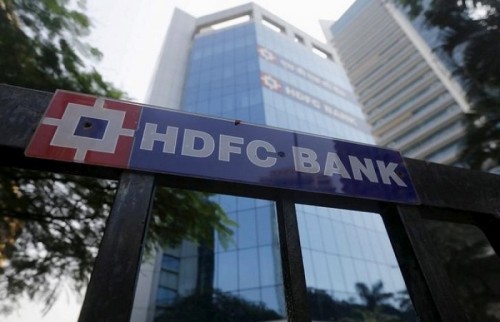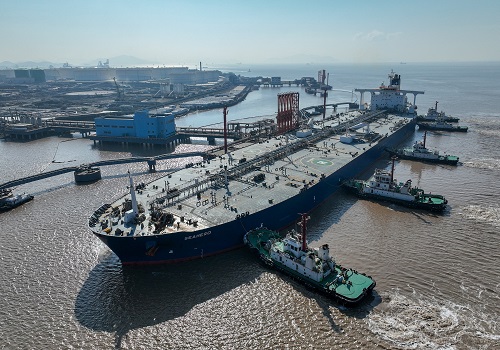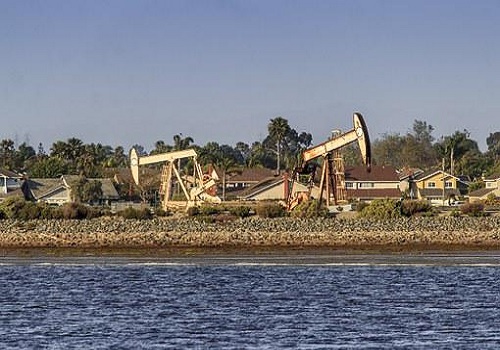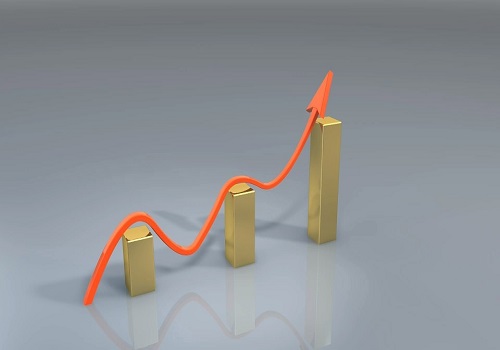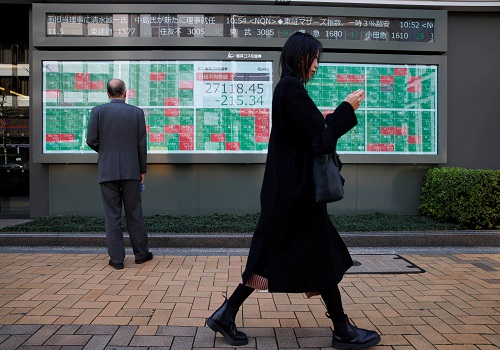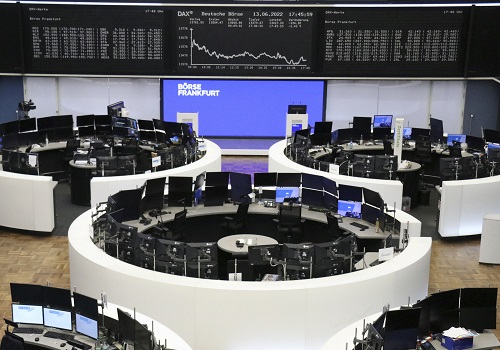Stocks slide on Ukraine woes, oil storms back above $100
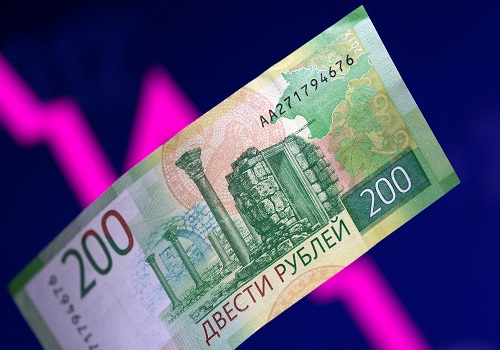
Follow us Now on Telegram ! Get daily 10 - 12 important updates on Business, Finance and Investment. Join our Telegram Channel
LONDON - European stocks sagged and oil jumped back above $100 a barrel on Tuesday as markets struggled with massive uncertainty caused by Russia's invasion of Ukraine, although the rouble steadied as Moscow scrambled support for its beleaguered markets.
Russia's stock markets remained suspended and some bond trading platforms were no longer showing prices, but dealing in the major financial centres both in Europe and in Asia overnight was orderly, albeit jittery.
Losses for the pan-European STOXX 600 were starting to mount again, with the index down nearly 2% by midsession [.EU]and Wall Street expected to open around 1% lower in New York later. [.N]
There had initially been gains for mining and oil & gas stocks but even those had soured and there was a heavy 4% slump in bank stocks with investors now sensing that interest rate hikes might now get delayed. [.EU]
Paul Jackson, Global Head of Asset Allocation Research, Invesco said: "assuming no rapid resolution to this conflict, we fear that global GDP could be reduced by 0.5%-1.0%."
"That's enough to aggravate the ongoing slowdown but not enough to produce recession," although he cautioned that some parts of Europe could see a recession and that inflation was also likely to stay higher for longer.
High-level talks between Kyiv and Moscow on Monday had ended with no agreement except to keep talking, and nerves were acute as a huge Russian armoured column bore down on Kyiv on Tuesday after lethal shelling of civilian areas in Ukraine's second largest city Kharkiv.
With Russia one of the world's largest oil and producers, Brent crude futures were up $4.51, or 4.6%, to $102.75 a barrel. That was just below a seven-year high of $105.79 hit after Moscow launched its assault on Ukraine last week. [O/R]
European natural gas prices leapt nearly 15% too. Both oil and gas prices are now up nearly 60% since fears of an invasion of Ukraine began to escalate in November.
"The fragile situation in Ukraine and financial and energy sanctions against Russia will keep the energy crisis stoked and oil well above $100 per barrel in the near-term and even higher if the conflict escalates further," Louise Dickson, senior oil market analyst from Rystad Energy, wrote in a note.
ROUBLE
The sense that the war and higher energy prices could slow the global economy meant euro zone bond yields continued to fall in the bond markets as traders further reduced their bets on rate hikes from the European Central Bank this year.
Benchmark 10-year U.S. Treasury yields were sitting at 1.80% in European trading having been over 2% less than two weeks ago [GVD/EUR], while the euro resumed its decline in the currency market. [FRX/]
Momentum in euro zone manufacturing growth had already waned slightly last month, revised PMI data showed on Tuesday, although it was still strong and firms said supply chain constraints had eased.
"Don't let the drop in the headline PMI distract from what should be viewed as a largely positive month for the euro area manufacturing sector in February," said Joe Hayes, senior economist at data compiler IHS Markit said.
Russia's rouble appeared to be stabilising after plunging as much as 30% to a record 120 per dollar after Western countries had slapped Russia with the most far-reaching sanctions ever placed on such an interconnected global economy.
Those measures include cutting Russia's top banks from the SWIFT international financial network and sanctioning its central bank in a bid to limit Moscow's ability to deploy its $630 billion of foreign reserves.
Russia responded on Tuesday by temporarily stopping foreign investors from selling Russian assets to ensure they take a "considered decision" Prime Minister Mikhail Mishustin said. Russia's huge sovereign wealth fund will also be pressed into action, spending up to 1 trillion roubles ($10.3 billion) to buy shares in Russian companies, a source close to the government told Reuters.
Sanctions though mean that the big global banks are now reluctant to trade with Russian banks and vice versa, which means there are now effectively two different rouble currency markets - one in Russia and one internationally.
Traders in London were quoting the rouble at between 101 and 105 per dollar, although it had been around 94 per dollar according to some local market prices.
More broadly, currency market volatility is at its highest since late 2020, as measured by a Deutsche Bank index and the rouble is down almost 30% from its best levels this year.
"Today, the focus will be on whether sanctions/retaliation will start impacting the commodity flows from Russia, and whether (Russia's central bank) will step in with more measures to support the rouble," ING FX analysts wrote in a note to clients.
Trading in Russian stocks meanwhile remain suspended on the Moscow Exchange and Russian sovereign and corporate bond prices were not showing on some trading platforms. JPMorgan's widely-tracked GBI-EM Global Diversified index did still include Russia's rouble-denominated bonds although Monday's market plunge had slashed their so-called weighting in the index.
Foreign investors held $20 billion of Russia’s dollar- and rouble-denominated government debt at the end of last year according to Russian central bank data while they own just over $85 billion worth of equities according to the Moscow Exchange.
"A lot of the (global) price action is a function of uncertainty." said Madison Faller at JPmorgan Private Bank.

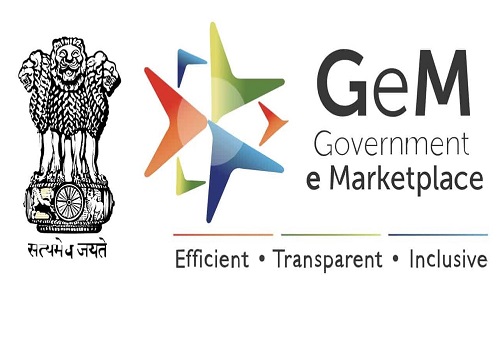


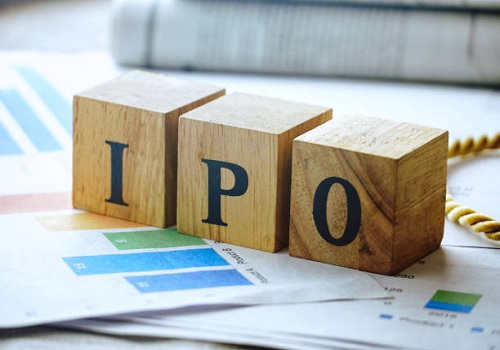



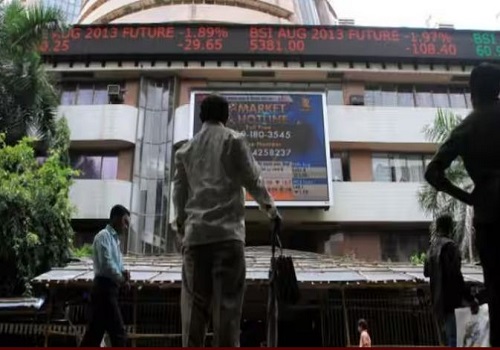



 320-x-100_uti_gold.jpg" alt="Advertisement">
320-x-100_uti_gold.jpg" alt="Advertisement">

